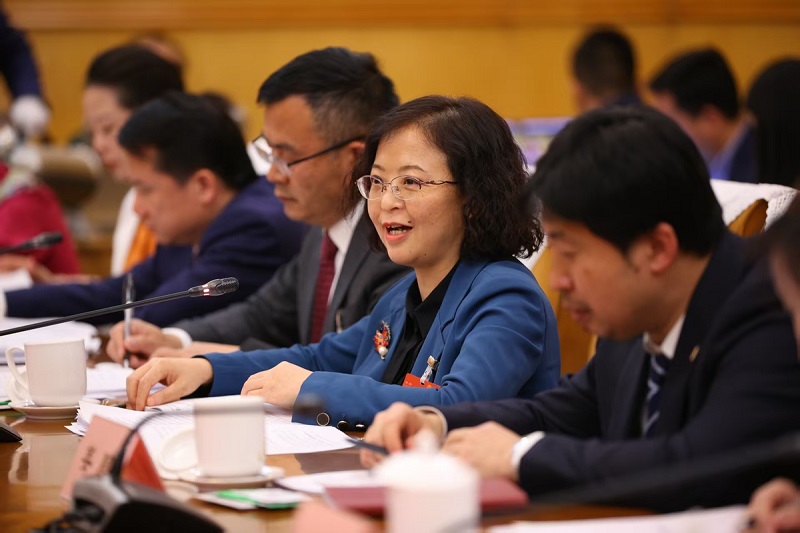-
Greater role for SOEs sought in eldercare
March 11, 2025China should support capable State-owned enterprises, both centrally and locally administered, in developing community-based home care service systems, said a national legislator on Monday.
-
Ningxia promoting green energy in new energy demonstration zone
March 11, 2025Ningxia, leveraging its abundant natural resources, is actively promoting the transition to green and low-carbon energy while striving to construct the country's first comprehensive new energy demonstration zone, a deputy to the National People's Congress said during the two sessions.
-
Transfar chairman: AI key to pvt firms seeking global edge
March 11, 2025Private enterprises in China must make more efforts to embrace artificial intelligence in order to gain a lead globally, a national lawmaker said on the sidelines of the two sessions that end on Tuesday.
-
Green hydrogen and methanol touted for big roles in decarbonization
March 11, 2025During the two sessions — the annual gatherings of the National People's Congress and the National Committee of the Chinese People's Political Consultative Conference — several NPC deputies proposed accelerating the development of these clean energy resources through coordinated policy support, technological advancements and market expansion.
-
China's new growth drivers gain momentum: NPC deputies
March 11, 2025As China improves its self-reliance and ability in science and technology, its new quality productive forces will be expanded, and new growth drivers cultivated. NPC deputies highlight the role of AI, digitalization, and industrial upgrades in shaping a more efficient and sustainable economy.
-
NPC deputy advocates consumption vouchers for elderly, child care
March 10, 2025Consumption vouchers or subsidies can be provided for families with infants aged 0 to 3 and senior people over 70 years old, said Zhuo Changli, 62, a deputy to the 14th National People's Congress and head of an agency in Jinan, Shandong province, that specializes in domestic services and care for the elderly and children.
-

NPC deputy urges wealthier regions to support rural healthcare
March 09, 2025Peng Danbing, a deputy to the National People's Congress, has called for wealthier regions to take a more active role in providing medical aid and improving the sharing of high-quality medical resources across regions.
-
Deputy calls for support for innovation in smaller cities
March 09, 2025A deputy to the National People's Congress has suggested to strengthen support for innovation in small and medium-sized cities to achieve economic upgrading and high-quality development.
links
京ICP备13028878号-11



